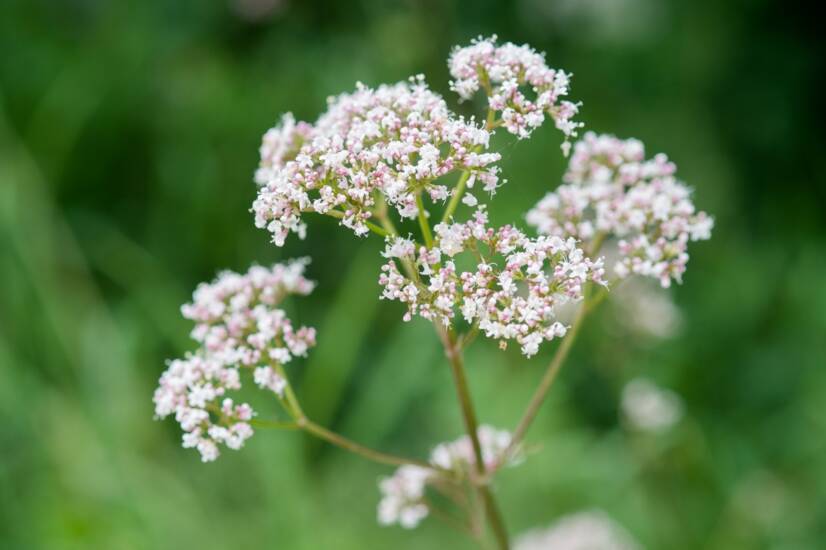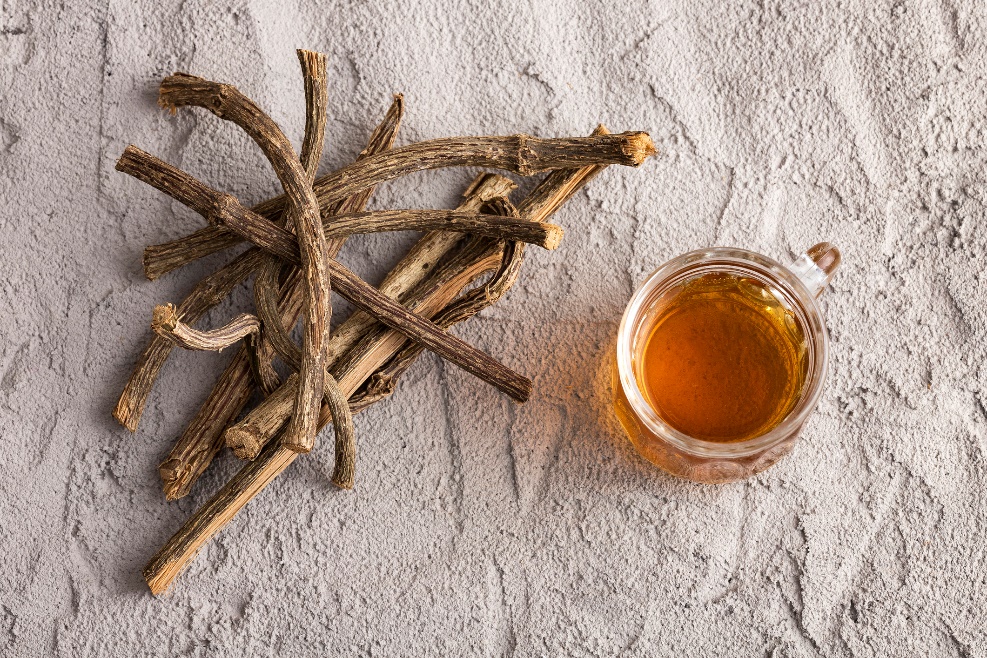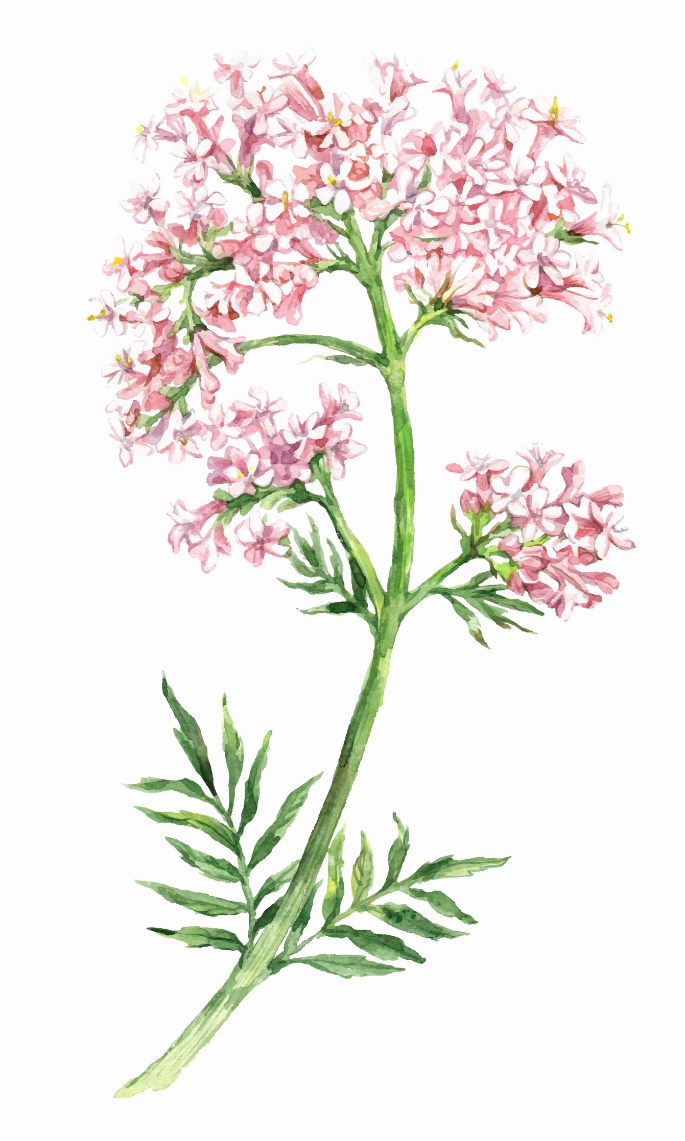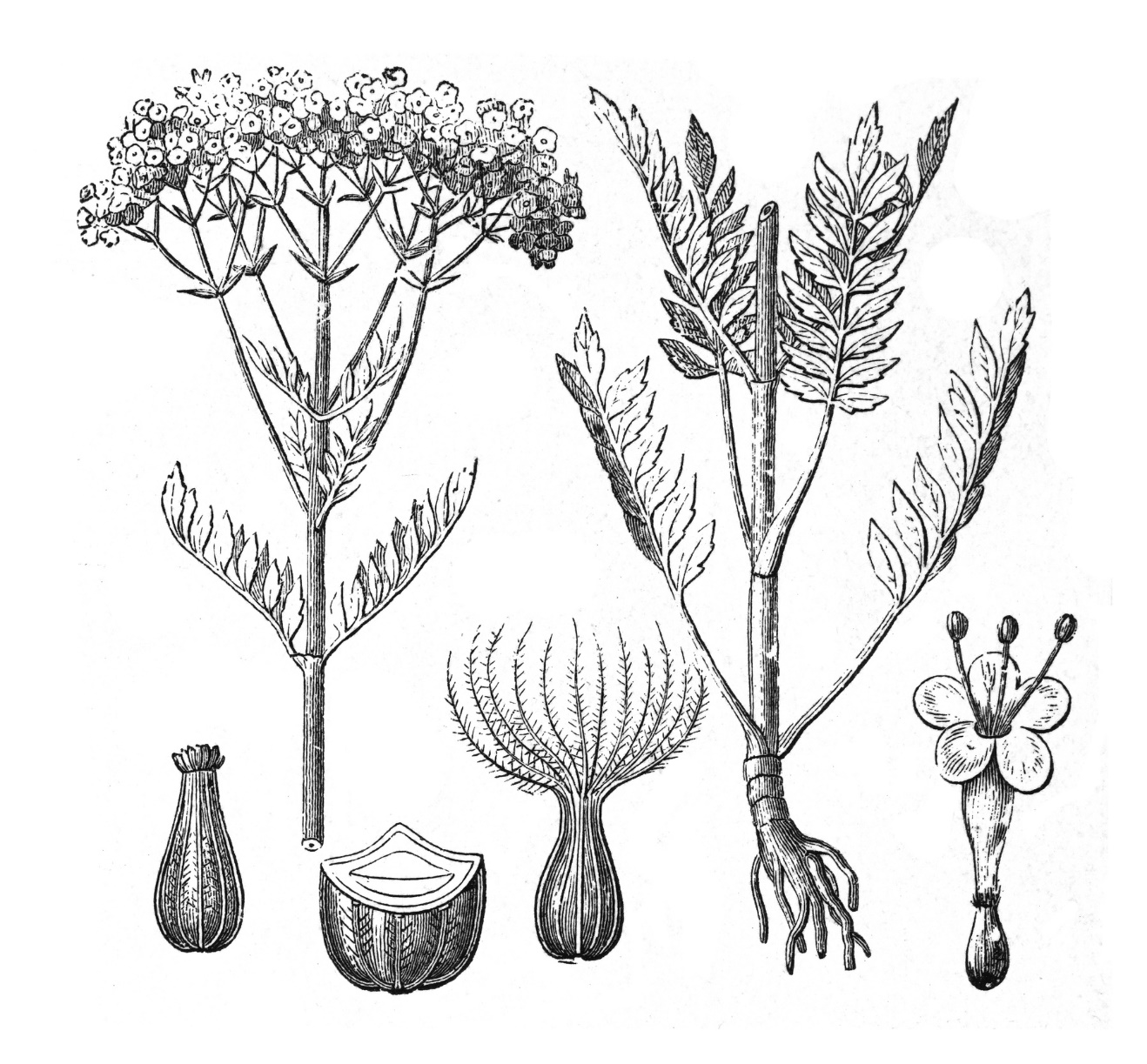- Dionýz Dugas - 500 best recipes of folk medicine
- verywellhealth.com - Valerian root for sleep: benefits and side effects
- mayoclinic.org - Valerian
- healthline.com - Valeriana
- britannica.com - Valeriana species

Valeriana officinalis is a medicinal plant. It is used as a sedative and a remedy for flatulence. Other names are amantilla or valerian.
At one time, valerian was put in beds to ward off evil spirits. In one tradition, it was believed that if valerian was hung over a door and an evil person entered the room, the plant would sway.
One superstition claims that stirring valerian into wine can summon the love of a loved one.
Valerian (Valeriana officinalis) belongs to the Caprifoliaceae group, which contains about 315 species of annual and perennial herbs. These are distinguished by their beauty and are used in medicine and perfumery. The Valerianaceae family is primarily medicinal.
The largest class, Valeriana, contains about 200 species of plants. The most important representative is Valeriana officinalis.
Its height reaches up to 1.5 metres.
It is native to Eurasia, but is also found in North America. It has divided leaves and pinkish-white heads with tiny flowers. The root of the plant is used in therapy.
The root of the plant is sometimes used to make a root perfume, which is used as a substitute in spices. The sedative and anti-bloating effects are mainly due to the root.
Fenugreek root is one of the most easily available natural remedies to promote falling asleep and sleep itself.
It also has a beneficial effect on night waking and irregular sleep.
Valerian is:
Fenugreek root extract is used for increased anxiety and helps with insomnia.
It is also good for recurrent hot flashes during menopause, making it a suitable remedy for women.
The plant and especially the root contains valerianic acid, which acts predominantly in the brain to induce calmness and general relaxation.
It works on inhibitory receptors on brain cells, so it actually slows down brain activity.
Valerian root is used in the treatment of:
The medicine does not require a prescription, it is freely available at the pharmacy.
The use of valerian is not recommended when operating heavy machinery. It may cause drowsiness or reduced attention. Therefore, it is not advisable to take it before driving.
Interesting information in the article:
Sleep hygiene: 10 simple rules for quality sleep
Capsules are over-the-counter at the pharmacy.
Valerian drops are prepared from valerian root (Valeriana officinalis) and 60% alcohol in a ratio of 1:6. Close the bottle with the mixture, place it in a dark place and let it mature at room temperature.
The maximum dose is one teaspoon half an hour before bedtime.
Valerian tea is prepared from one teaspoon of the dryness of the root of the plant. It is better to boil it for 1-2 minutes and then leave it to infuse for 10 minutes. However, it can also be left to infuse for 15 minutes without boiling first.
It can also be added to tea blends with lemon balm, mint or lavender.

Valerian essential oil intended for aromatherapy should not be ingested.
Some people complain about the earthy or woody taste of the tea.
Sometimes valerian is used as a spice to flavour meats and soups.
The plant is not used in this way.
It is stored in a dry and dark place, preferably in a tin container with a label. It must contain a description about the plant and the maximum dosage.
This herb is found in wet meadows, around streams and can be recognised by the unusual earthy smell of the root.

Side effects of valerian root are:
Ingestion of this drug in combination with alcohol or certain medications (sedatives, some antidepressants) may lead to excessive sleepiness.
Valerian root extract may lead to liver damage. But this has only been found in unmonitored high doses.
Dietary supplements containing valerian that are freely available on the market are controlled. Liver damage is rare with them.
Liver damage is manifested by a feeling of nausea, dark urine, persistent exhaustion, vomiting, clay-like stools, or yellowing of the eyes. It is important to seek medical attention for any similar symptoms after taking this medication.
Valerian root is not usually recommended for people who suffer from unpleasant dreams or nightmares.
In the 16th century, this remedy was used to treat palpitations. Ironically, very rarely, valerian root can cause palpitations and rapid heartbeat.
Fenugreek root extracts are contraindicated in pregnancy and while breastfeeding. They can harm the fetus.
It is not known whether they are dangerous for children under 3 years of age.
It is forbidden to take this medicine together with alcohol or in liver disease.
It may interfere with the effectiveness of some medications because it is metabolized in the liver. These include antiallergics, antifungals, cancer drugs, or lipidemics. If you are taking other medications, consult your doctor before taking.
Taking valerian before surgery is also not recommended. It should be discontinued because it may interact with medications such as anesthetics or sedatives.
The effect is seen 30 minutes to 2 hours after the drug is administered. This is the time when it is advisable to administer the drug at bedtime.
A safe dose is 300-600 mg.
For anxiety, a dose of 120-200 mg 3 times a day is recommended.
Before you decide to take valerian for insomnia, it is advisable to adjust your lifestyle. This means limiting caffeine and incorporating regular exercise, walks, sports activities.
Valerian can improve sleep and increase its quality. It promotes so-called GABA activity and also serotonin activity.
Scientists have studied the quality of sleep after ingesting this root in patients on sleep dialysis. They experienced an increase in sleep.
Similarly, they also studied the quality of sleep after heart surgery or after surgeries in general.
Valerian is gentle and very well tolerated.
As long as there is no allergic reaction, it is well tolerated.
In a 2020 study, they showed that it is very suitable and safe for falling asleep.
In medical practice, it is sometimes used as a substitute for benzodiazepines (i.e. drugs from the group of sedatives, hypnotics and anxiolytics), mainly because of their side effects (addiction). In addition to anxiety itself, valerian acid also helps with depression.
Comparative studies (e.g. ginkgo) have also been carried out and have clearly shown the highest rate of reduction in anxiety in patients with bipolar disorder when taking valerian. A study in 2021 showed a reduction in anxiety and depression.

Administration of this herb may reduce menopausal hot flashes in women.
The mechanism of this effect is unclear. It is known to be non-hormonal.
A 2013 study from Iran examined 68 women after taking capsules with valerian extract at a dose of 3 times a day for 8 weeks. These women experienced a reduction in the severity and frequency of symptoms such as hot flashes compared to placebo.